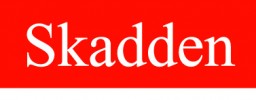10 February, 2016
On January 15, 2016, the Stock Exchange of Hong Kong Limited (HKEx) published its Country Guide on Russia and placed Russia on its list of “acceptable jurisdictions,” formally signifying that Hong Kong’s sole regulated stock exchange is now open for applications from companies incorporated in Russia. This follows the February 16, 2015, signing of the Multilateral Memorandum of Understanding Concerning Consultation and Cooperation and the Exchange of Information by the Bank of Russia, which was one of the prerequisites for Russian issuers being eligible to apply for acceptable jurisdiction status.
In placing Russia on the acceptable jurisdiction list, the HKEx acknowledged that Russian standards of shareholder protection are not materially different to those in Hong Kong. Due to Russian legal and regulatory requirements, Russian companies that are admitted to listing on a Russian stock exchange as part of an initial public offering process or that already have a listing in Russia will be eligible to apply for a listing on the HKEx1 via depositary receipts.
The HKEx identified a number of differences between Hong Kong and Russian laws that may require Russian companies to amend their constitutional documents or internal policies. In particular:
- Remuneration of Auditors. Russian law permits the board of directors of a company to approve the remuneration of auditors and does not require a separate approval from shareholders. The HKEx has indicated that Russian listing applicants will be required to amend their constitutional documents or internal regulations to require the board of directors’ approval of auditors’ remuneration to be based on the recommendation of an independent body, such as an audit committee comprising wholly independent nonexecutive directors together with an “advisory vote” from shareholders. The latter means that the Russian applicant should voluntarily ask independent shareholders for their approval on auditor remuneration, even if shareholder approval is not required under Russian law; the board of directors should not proceed with the remuneration of auditors unless shareholder approval is obtained.2
- The Right to Speak at Shareholder Meetings. The HKEx expects the right of shareholders to speak at general meetings to be included in a company’s constitutional documents.
- Director Undertakings. The HKEx will require each director to contractually undertake to the company and the HKEx to accept full responsibility, collectively and individually, for the company’s compliance with the Hong Kong Listing Rules.
- Notifiable and Connected Transactions. The HKEx will require Russian companies to address differences between the approval process for certain transactions by amending their constitutional documents. The amendments should state that any transaction that requires either shareholders’ or independent shareholders’ approval under the Hong Kong Listing Rules (other than major and interested party transactions requiring shareholder approval under Russian law) may not be approved and adopted by the company’s directors unless and until the company has obtained the advisory vote from disinterested/independent shareholders at a general meeting in favor of the transaction.
The HKEx also indicated that it was prepared to consider granting waivers to Russian companies from strict compliance with, among others, the relatively onerous Hong Kong Listing Rules on notifiable and connected transactions, subject to implementation of the advisory vote mechanism noted above.
We understand that the Russia Country Guide was prepared by the HKEx on its own initiative.3 This differs from prior jurisdictions that were all placed on the “acceptable” list as a result of a formal application by a listing applicant and, therefore, represented a regulatory outcome acceptable to that specific applicant. As such, it is unclear to what extent the changes the HKEx has deemed necessary for Russian companies to list on the HKEx will in practice be acceptable to, or capable of implementation by, Russian companies due to the requirements of Russian law. Russian companies contemplating a listing in Hong Kong may need to work with the HKEx and their advisers to craft suitable alternatives to the requirements set out in the Country Guide on Russia.
Possible modifications notwithstanding, the fact that the HKEx has issued the Russia Country Guide on its own initiative is a strong indication that the HKEx is keen to welcome Russia-incorporated companies to the Hong Kong market.
1 While the Country Guide on Russia confirms the possibility of a primary listing of a Russia-incorporated company and indicates that the HKEx would be receptive to secondary listing applications from companies already listed on a “recognized exchange,” it does not clarify whether the HKEx would grant the extensive waivers from strict compliance to the Hong Kong Listing Rules necessary for secondary listing applicants not already listed on a recognized exchange to successfully list on the HKEx. The Country Guide on Russia is not a standalone document and is meant to be read in conjunction with the Joint Policy Statement Regarding Listing of Overseas Companies, published on September 27, 2013. Under the joint policy statement, the HKEx will “consider it reasonable to grant extensive waivers” only if the applicant has a primary listing on a recognized exchange. The Moscow Exchange is not yet included in the list of recognized exchanges, and we understand that the Securities and Futures Commission of Hong Kong is not minded to expand that list in the foreseeable future.
2 The “advisory vote” mechanism is a HKEx requirement to address the discrepancy between the requirements under Russian law and the Hong Kong Listing Rules. The implementation of such a mechanism (or other suitable alternatives) will need to be further discussed and addressed with the HKEx.
3 We understand that the India Country Guide also was prepared by the HKEx on its own initiative.
For further information, please contact:
Christopher Betts, Partner, Skadden
christopher.betts@skadden.com






